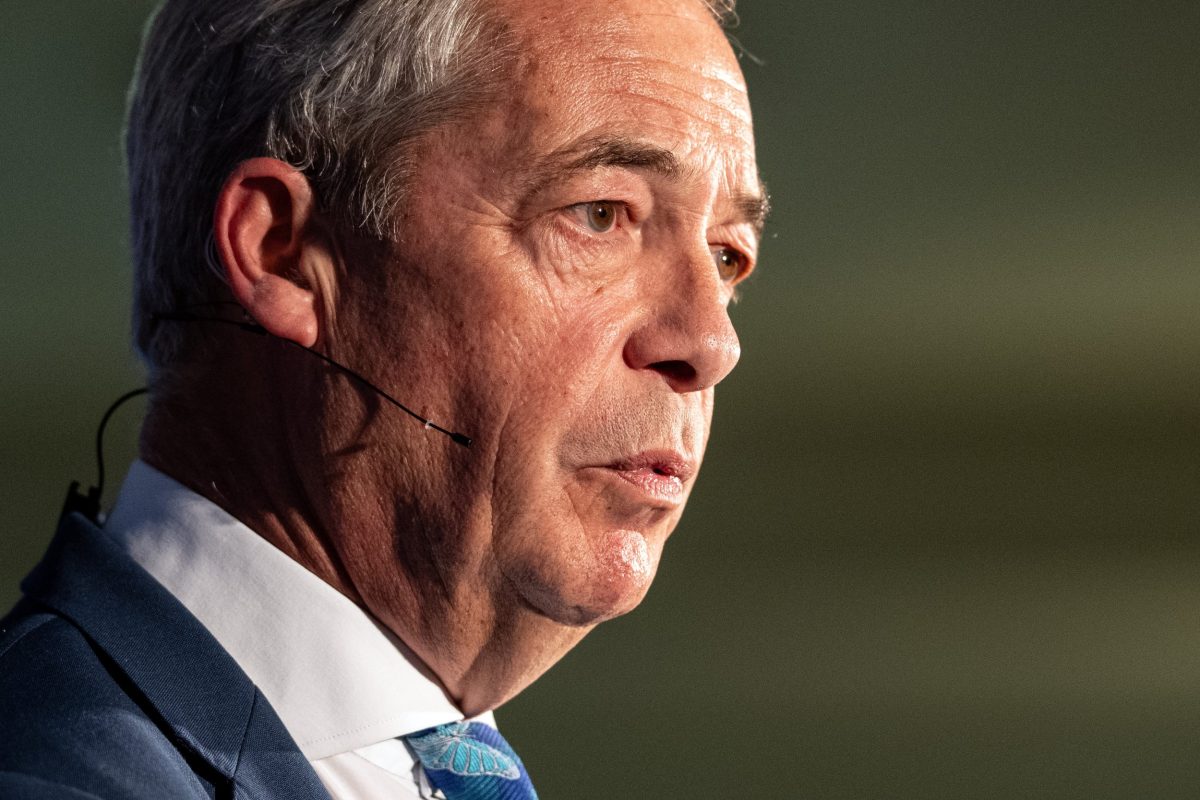Nigel Farage, leader of Reform UK, announced a significant policy shift on June 17, 2024, during an event in Merthyr Tydfil, Wales. He unveiled a “contract” detailing the party’s commitments ahead of the upcoming general election, stating that the term was deliberately chosen to convey seriousness, as the word “manifesto” has been devalued by political breaches of trust. Just over a year later, Farage stood before an audience in the City of London to announce the abandonment of a key promise: a £90 billion tax cut.
Reform UK currently enjoys a strong position in opinion polls, often ranking above Labour and pushing the Conservative Party into third place. Despite this success, there are concerns that voters may soon scrutinize the party’s lack of experience, a vulnerability that opponents are likely to exploit. Farage believes that reconciling the party’s anti-establishment ethos with a credible policy agenda is essential for capturing the mainstream electorate and ultimately securing his position at No 10.
Strategic Retreat from Tax Cuts
Farage’s decision to retract the tax cut pledge has been in the works for some time, reflecting pressures from various economic critiques. The party’s initial manifesto included proposals, such as raising the personal tax allowance to £20,000, which the Institute for Fiscal Studies estimated could cost around £80 billion. In May, independent economists warned that Reform’s economic plans could provoke market instability comparable to the fallout from Liz Truss’s brief premiership, a narrative Labour has seized upon to portray the party as a potential return to chaos.
In his recent speech, Farage sought to mitigate concerns by stating that substantial tax cuts are “not realistic at this current moment in time.” Instead, he proposed a more measured approach, starting with initiatives like eliminating inheritance tax for family farms, while waiting to realize savings from reductions in public sector spending and welfare costs. While this pivot aims to address electoral vulnerabilities, it risks portraying Farage as untrustworthy to some voters and could alienate supporters who initially rallied around the party’s low-tax message.
From an internal party perspective, Farage has the authority to implement this change without apparent dissent, a testament to his strong leadership within Reform.
Mixed Reactions to the Policy Shift
Support for Farage’s new direction has emerged from various quarters. Linden Kemkaran, Reform’s leader of Kent County Council, praised the decision as “sensible,” emphasizing the necessity of adapting to the current political climate. “The world has changed beyond recognition,” she noted, underscoring the need for flexibility in policy planning.
Even among right-wing commentators, the shift has not drawn significant backlash. John Longworth, former director-general of the British Chambers of Commerce, expressed approval, stating that the party’s previous economic proposals lacked credibility. He remarked, “The fact that they’ve actually rectified that is a positive. They are becoming more responsible and positioning themselves for potentially being in government.”
Some Labour MPs view the tax cut retraction as a politically strategic move, with one MP stating, “If I was advising him, it’s what I would have told him to do.” This MP indicated that Labour would utilize the U-turn to frame Reform’s previous promises as evidence of incompetence, although maintaining this narrative could be challenging if Labour itself deviates from its own fiscal commitments.
Farage’s shift towards the political centre has raised eyebrows, with critics arguing that it indicates a transformation of Reform into a party more akin to the Conservatives. Labour aims to highlight the number of former Conservative members now within Reform, suggesting a dilution of the party’s original principles.
Research from the More in Common think-tank reveals that Reform’s voter base is evolving. Approximately 20% of their supporters come from the Conservative ranks, while slightly fewer defected from Labour. Notably, the economic perspectives of these groups differ significantly; two-thirds of Labour defectors favour wealth redistribution, compared to only 23% of former Conservative voters.
The party’s current challenges reflect a broader concern regarding economic credibility. While Reform garners more trust than the main parties on immigration, it is viewed with skepticism on economic issues. “The economy is a weak point for Reform,” said Louis O’Geran, a research associate at More in Common. He added that as the election approaches, scrutiny of Farage’s economic policies will increase, necessitating early efforts to build the party’s credibility in this area.
As Farage navigates this complex landscape, the risk remains that newer Reform supporters may return to their previous parties if they perceive a lack of commitment to tax reduction and economic reform. Recent surveys indicate that while early Reform voters are highly loyal, newer supporters are more transient, swayed by the larger political environment.
In summary, Nigel Farage’s recent policy reversal illustrates the balancing act he must perform to maintain Reform UK’s appeal across a diverse electorate. With the general election approaching, the effectiveness of this strategy in securing the party’s future remains to be seen.







